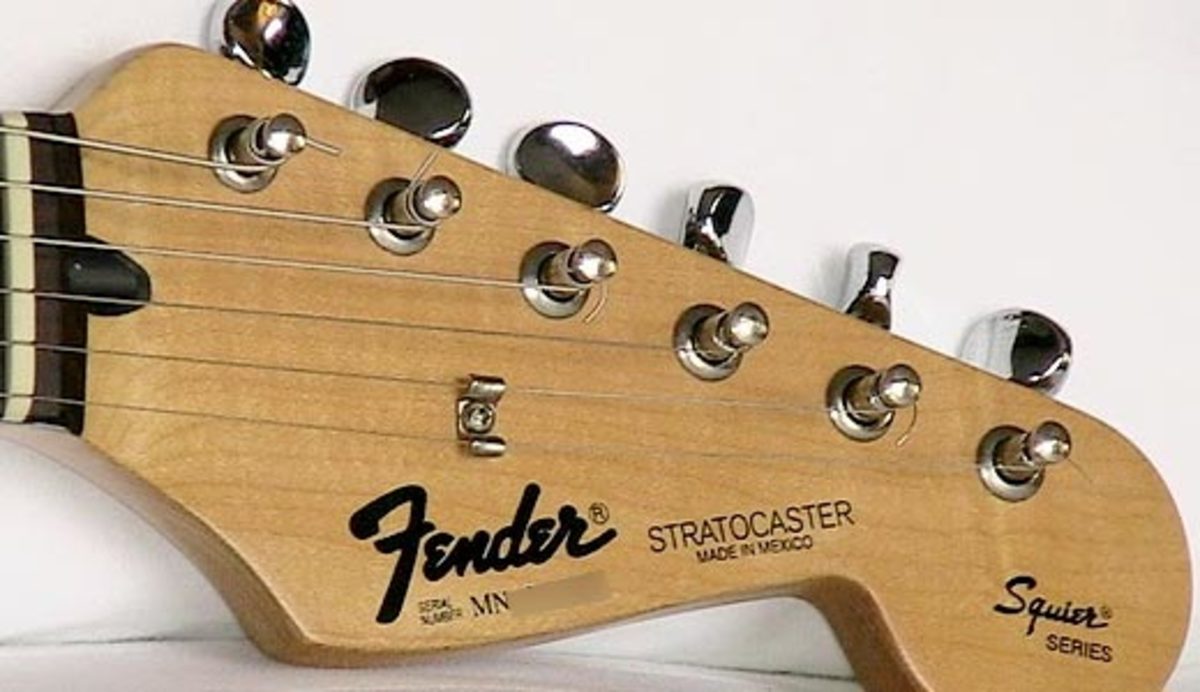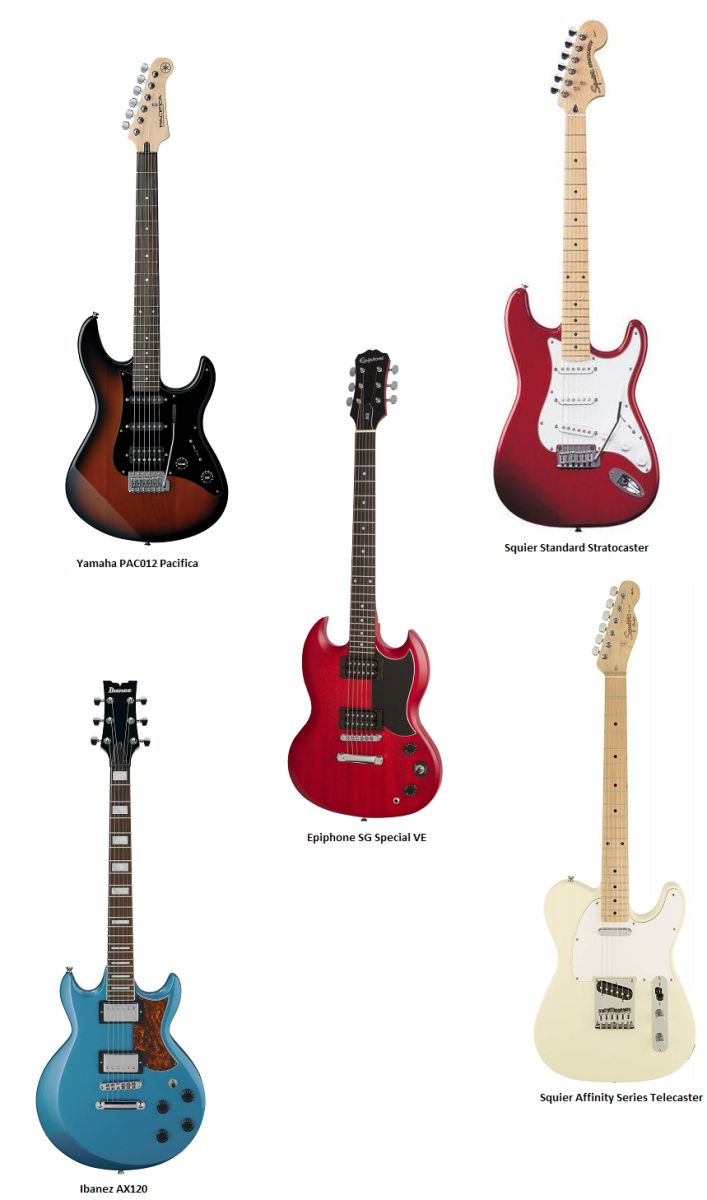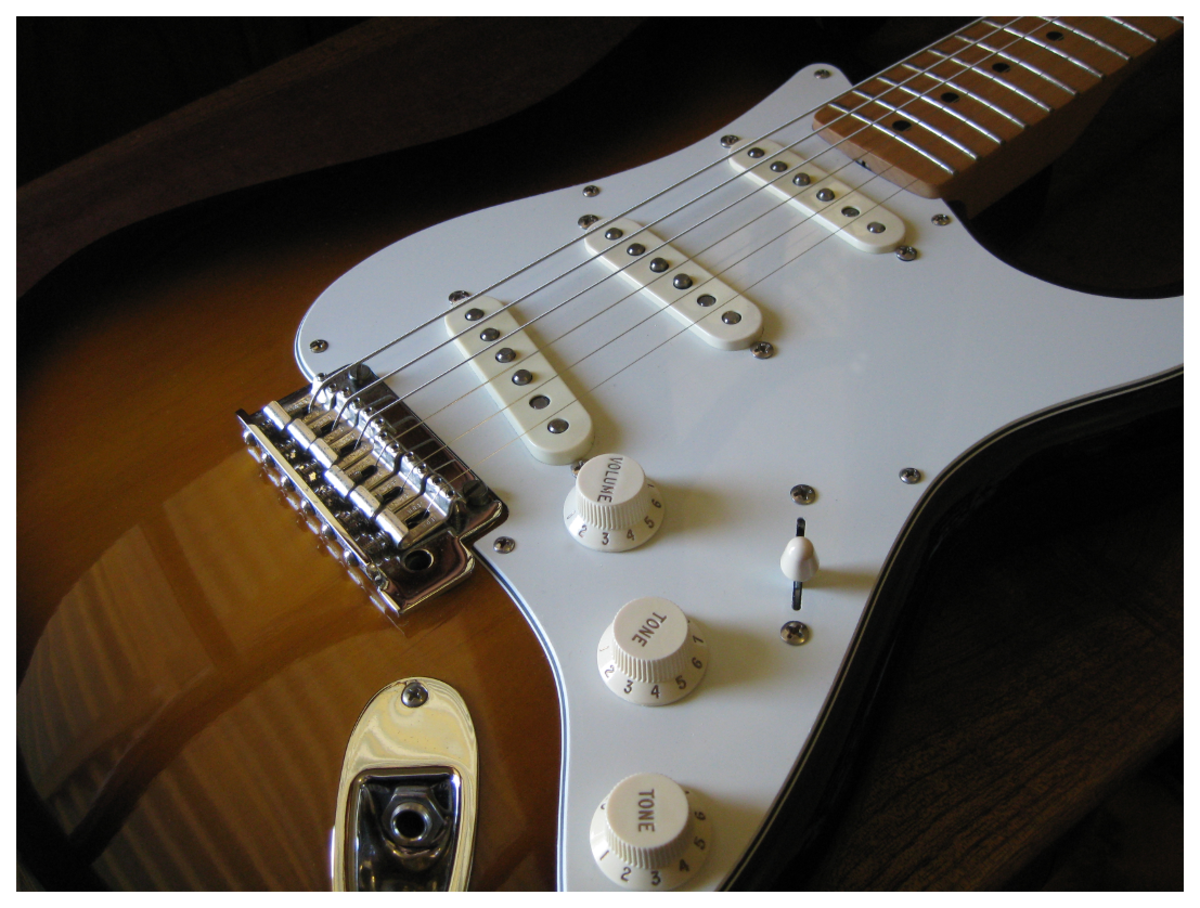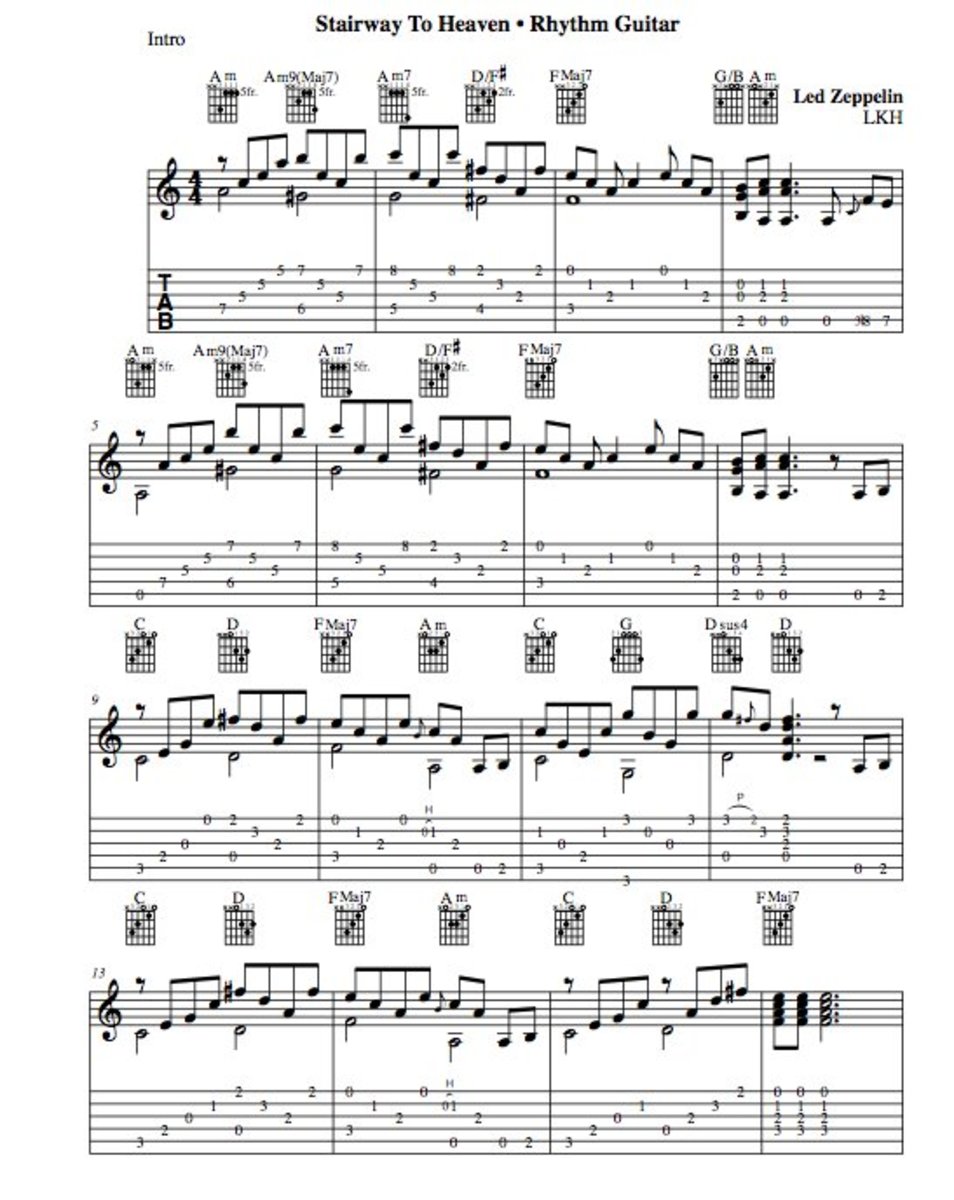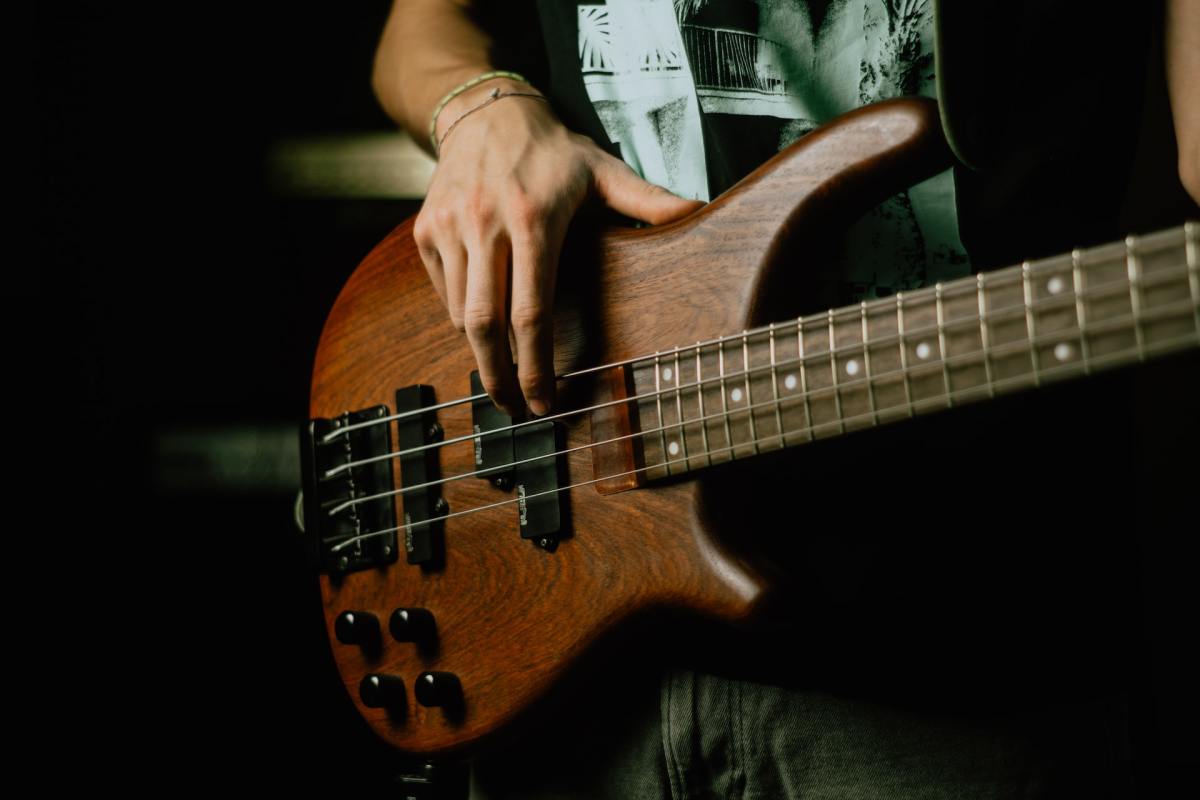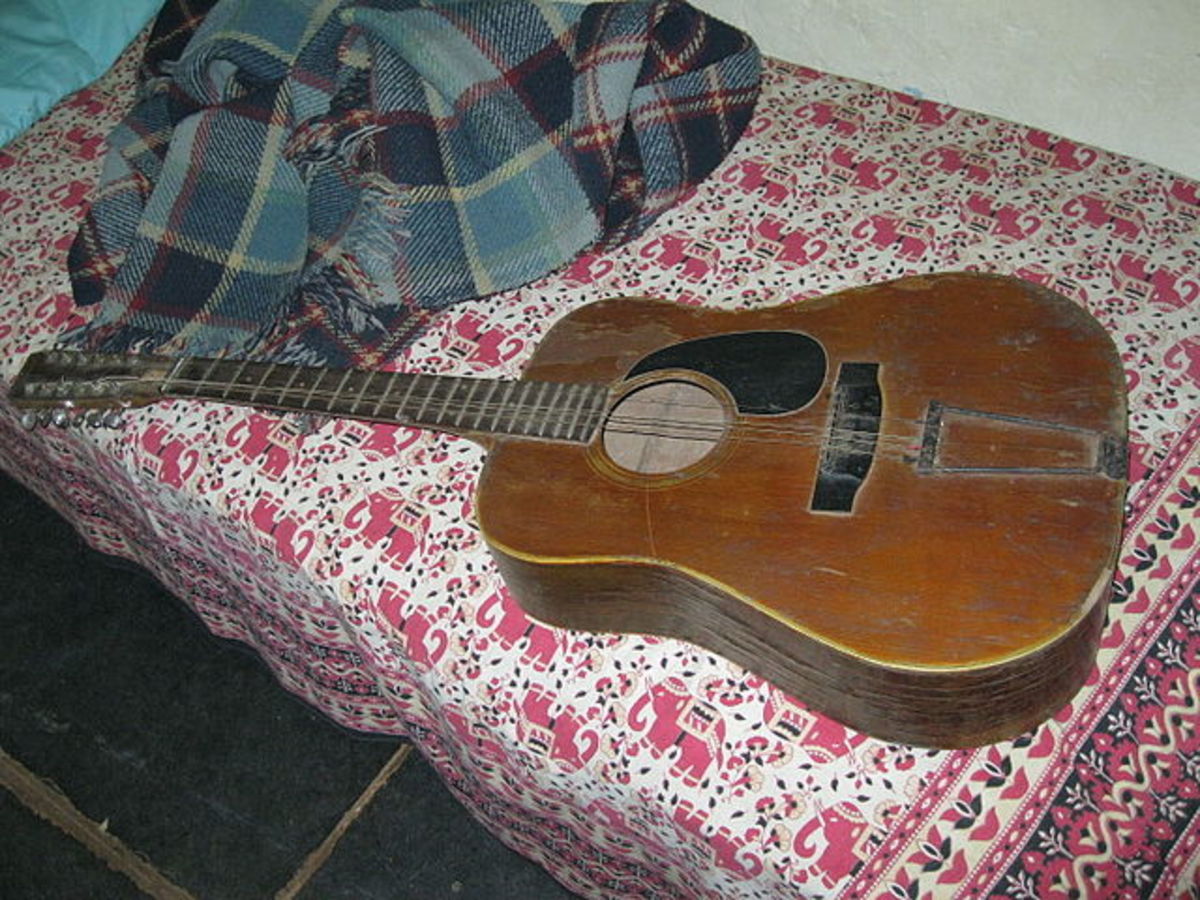Buying A Guitar Guide
Why take my word for it?
Buying the right guitar, and amp for that matter, is important if you want to make fast progress, and even earn some money! A guitar can also make a great present - although it's even better when combined with a few lessons. Just remember that Part 2 of this article will be How To Sell A Guitar - an altogether more difficult area!
- What is the worst - case scenario? - buying the wrong size of guitar! The number of kids I've seen struggling with a guitar that is twice their size! For kids, try a travel guitar such as the Taylor GS mini, secondhand if at all possible.
- Even adults have a huge range in terms of hand size, and if you don't get it right it will definitely slow down the learning process.
- Youtube is a great way to audition guitars, as many of the best guitar shops will post a video of their guitars - you may also be able to check out the neck size.
I can point you in the right direction as a result of 30 year's experience, not all of it good! I don't claim to know everything about guitar construction, but I own some great instruments and also do a lot of research. This includes reading all the reviews in many of the guitar publications. Guitar Player magazine is widely available, and also does online editions where you can see and hear demos of guitars and amplifiers.Their reviews are comprehensive and excellent.
I'm happy to give you advice via the comments box below, so feel free.
First, some good news: there has never been a better time to buy a guitar, as overall the quality has greatly improved over the last few years, at least in the area of beginner guitars, and also at the top end of the range.
Problem No.1: There is a bewildering amount of choice. It is dependent not only on your favourite styles of music, but also on physical limitations such as hand size. Fortunately, the internet has made it easy to research other player's reactions to different guitars,including build quality, comfort, sound and customer service. I would be very circumspect about buying from e-bay due to various scams, but I have found that internet shopping from shops, including international shipping, has been totally reliable, and even fun. I have linked some good guitar shops below, which are full of great gift ideas.
Acoustic Guitar magazine, December 08 issue has a very good article on guitar construction which will help you reach an informed decision on what to buy.
Martins are generally good, Collings are fantastic but a big investment.
All-round electric: Fender Telecaster, but USA made or new Mexican Road-worn series. Close second, Fender Stratocaster.
THE TWO VITAL THINGS: Action (height of the strings above the neck, whether there is any clanking or buzzing on frets) and neck size. Both of these factors have to be right. The size of the nut is an important component of neck size, personally I hate wide nuts due to relatively small hands.
Baby Taylor travel guitar
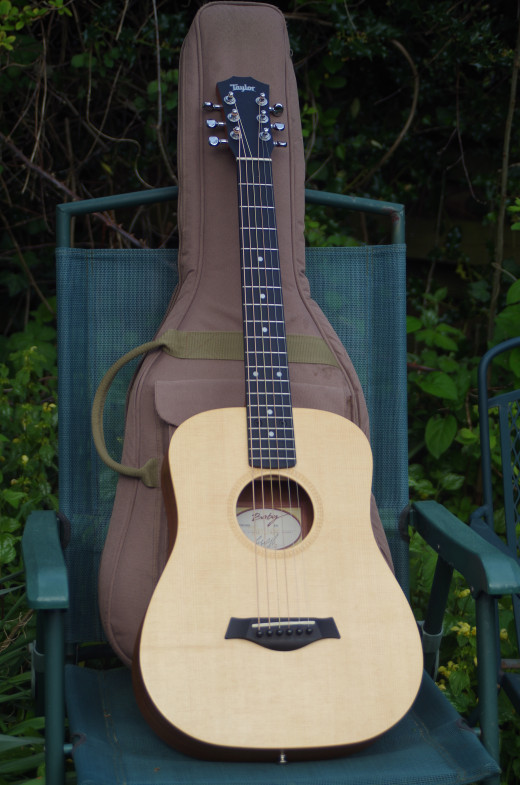
Types of guitar
- Classical nylon-string. Nice sound, but wide necks and limited stylistically. Could well slow your progress.Very poor design for lead playing, as the lack of dots or inlays make it easy to get lost. This is because Spanish people want to stop competition on their instrument. Discuss.
- Acoustic steel-string. Generally good, but small bodies are better. Must have low action. Yamaha acoustics are often a good inexpensive option, or Baby Taylors. Ideally, solid woods should be used, not laminates, as this will give you much better tone, and an instrument that will continually improve over a 20-year period.
- Electric. Often the best option because they are easier to play, and loud enough for playing in ensembles.The Telecaster and Stratocaster are popular partly because they are so comfortable to play, and not too heavy - an important consideration in a gigging guitar.
- Hollow-body electric (or "semi") Great for blues and Jazz. Gibson 335 type guitars are great. For those on a limited budget, Epiphone make pretty good semis, such as The Sheraton and The Casino. Although the electrics generally and the pickups specifically really let them down, they are easy to play and a good deal secondhand. I also like many Ibanez guitars such as the PM35, which practically plays itself with a great neck and a great design overall.
- Electro-acoustic. Don't like them. At all. The worst of both worlds - sorry if you've just bought one! The piezo design of pick-ups never really works that well. I'm going to allow one exception in the shape of the Taylor T5, which sounds pretty good and has a near perfect neck and playing action.
If you are a beginner with small to medium hand size, try electrics such as Stratocaster, Telecaster (Fender designs) or a 3/4 size classical nylon-strung guitar. Acoustic steel strings can be hard work, so try small-bodied types and use a capo on fret 3 or 4 to reduce the action (height of the strings) and fret size. It's worth considering putting very light gauge strings on your guitar to help you get started quickly.
You should definitely visit your local guitar store and try as many as possible, as the neck width especially will make all the difference. The action is the other really vital aspect - take a guitar-playing friend for advice. Electro-acoustics are nearly always terrible when amplified, best avoided. Acoustics- check for solid woods,which always sound best. Anything with pointy bits, pointy headstocks,camoflage or skull finishes - don't say I didn't warn you!
Snark tuners
Very good visibility which comes in handy at gigs, you can rotate the display. Single cheap battery which has a reasonable life, will last several months on average.
Essentials
I use the Snark tuner and the Shubb capo for every gig, happy with both of them and it's not the end of the world when they go missing in action, which they invariably will! The Shubb capo is very solidly engineered, but also light.
Protecting your investment
There is good news and bad news. Almost inevitably you are going to want to change the guitar you start with. Although generally guitars hold their value well, if you buy the wrong one in the first place you can expect to lose 50% on depreciation when you sell second-hand. By the time you have done this three or four times, it would have been cheaper to get something great in the first place, and playing guitar would have been a lot more fun. You could start with a cheap electric and then upgrade the pick-ups and tuning machines at a later date - but this is a fast way to lose money in my experience.
Should I buy a vintage instrument? No, I think the market is going to crash very badly. Also, many people believe we are now in a golden age of guitar-making, when standards have never been much higher, and you get more for your money from entry-level up to professional-grade instruments.
Recommended guitars
Go beyond your means if possible, and get something built with craftsmanship. First, research. I like Ed Roman's website, particularily the section entitled rants. Here you will find some great advice and humour.
G+L guitars - USA made, not the tribute series. They are all great, and good value. Asat classic, George Fullerton signature are wonderful guitars.
Fender custom shop -Telecasters, Stratocasters. Excellent guitars, but I would find one second-hand. And relics - why pay to have your guitar distressed when you can do it yourself by being a bit careless/gigging a lot/letting small children near them.
Archtop guitars - generally great value and the best for jazz. Gibson 175 is the best bet, or D'Aquisto,or D'Angelico guitars. Triggs guitars are also fantastic
Collings guitars - they are brilliant and totally recommended
Martin acoustics - another good option
Gibson 335 - a classic design, easy to play, sound great for blues, rock and some styles of jazz (like fusion). Hard to go wrong with this guitar. The new 339 is highly rated in the press.
Heritage (USA) guitars are very good, the 530 especially, one of the best guitars you'll find anywhere.
Low budget choices
Fender Squiers are often very good value for money - they are a cheaper version of the Fender Stratocaster and Telecaster designs. However, you need to be a bit cautious as they are made all over the world - anywhere except America! Depending on the country of origin and the year of manufacture the quality varies wildly. Assuming you find one secondhand they can be a great deal. If the intonation is strange (as it is on my current Squier) here is a tip:
- The floating bridge assembly can be rubbish. Dispense with the whammy bar, even if it hasn't already been lost, and screw down the bridge screws firmly into the body - they have usually worked loose, and this will hamper your valiant attempts to get the thing in tune.
- Also tighten up the small screws in the tuning or machine heads, as this will stabilize the tuning.
Buying secondhand
- Case- is original case included?
- Damage - scratches are OK, but should be reflected in the price. I actually like them, because then you don't have to worry about wear and tear and getting dings on a nice new finish, and you can just enjoy playing a bit more.
- Headstock repairs - especially on Gibsons, where neck breaks are common
- Electrical switches and jack sockets - are these OK? Many guitars of Far East manufacture have real problems with these parts, Japan -made are usually OK.
- Have pickups been changed?
- Is the neck fairly straight?
- Any fret buzz might indicate neck or fret problems
- Is this guitar a fashion victim? - not everybody likes metallic pink finishes with strange pointy bodies. The Telecaster is a design classic for a reason!
- Look for any signs of heat damage - guitars should not be stored in a loft! They need to be kept well away from radiators and hot car environments too, but the previous owner may not have known this!
Must Have Accessories
A CAPO is probably the single most useful thing to have. The Shubb capo is good, and will enable you to play lots of Beatles, James Taylor and Beatles songs in their original keys.
Plectrums: an ongoing debate here. I like Jim Dunlop 73mm picks, as the embossed surface really helps, and use the 88mm ones for lead playing. It's a personal thing though.
Tuner: I like the intellitouch type which you clamp to the headstock, as it picks up vibrations and generally works very well.
More detail is in my other hub Gifts for Guitarists
The link below is for Acoustic Guitar magazine - a great source of songs, guitar reviews etc. Another recommended website is musicradar.com, where you will find gear and guitar reviews, and lots of free tuition videos.
Taylor Guitars
Taylor acoustics are really good. I'm using a Baby Taylor as a travel guitar, and also like the Big Baby for open tunings - neither of these was designed as the ultimate acoustic guitar, and they don't give you the full tonal response of the best guitars - but they are very practical and easy to play. So I would recommend them both, especially for kids.
All round favourite is now the Taylor GS mini-e, small light and inexpensive for what you get!


